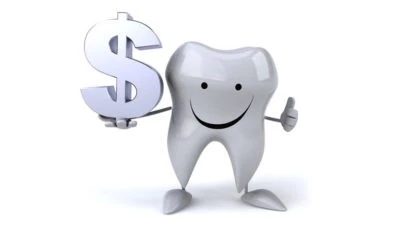Proposing Dental Care Plans for Uninsured Patients
According to the Centers for Disease Control and Prevention, around 45 million Americans are not dentally insured. This population is unlikely to seek for regular dental checkups and even skip basic preventive care. This decreases the index of oral health unless affordable dental care plans are proposed by dental professionals.
Dental schools and community dental clinics are accustomed to work with uninsured patients. Patients are encouraged to do some searching to find out the available community dental clinics which provide dental services at low or no cost. In addition, local public hospitals normally include community dental care or at least can refer to such clinics in the neighborhood. The American Dental Association (ADA) had launched the “dental health” map were all free and affordable treatment programs, provided by non-profit, health-care organizations within a state, are listed. The tradeoff for patient will likely be spending more time at the dental chair and visiting the clinic many times to complete their dental treatment.
But even insured patients struggle with certain dental insurance plans that carry several restrictions on dental treatments, especially for patients with preexisting conditions. For example, dental insurance does not pay for restoring teeth that were lost prior to purchasing the insurance policy. It sometimes takes 6 months or a year to get coverage on basic dental restorative services. Dental insurance works best for essential preventive care and a little more with a couple of fillings.

Many dentists currently run in-house financing programs that help in offering discounts for uninsured patients. For example, dentists attempt to complete dental treatment for uninsured patients over relatively long period so the patient won’t have to pay off all expenses at once. This approach is called “sliding scale” and it is one of the payment options that many dentists are currently adopting. Dentists understand how cost and fear issues make people avoid proper dental care and seek only for emergency treatment.
It can be said that uninsured patients are luckier than insured ones. There is no waiting time prior to receiving dental treatment and no restrictions regarding preexisting conditions. Many dentists agreed on tailoring dental treatments according to every budget and dental care need, and these plans extend from basic care to complex treatments.
Dentists try to acquire new patients to grow their business, and uninsured patients could have millions of dollars comprising for untreated dental problems. The proposed dental care plans convert uninsured patients into subscribers; and this can enhance dentists’ income and revenue by 50% as a result of increasing treatment acceptance. Dentists can also participate in dental education and dental health campaigns to assure patients about fear of cost and to acknowledge patients about the existing low-budget plans.
Most of uninsured patients are interested in purchasing dental-care plan membership offered by dentists directly to their patients without insurance companies or any third party. In this model, patients pay monthly subscription to the dentist for preventive treatment and regular checkups, while gaining good discounts on all other treatments. Such plans are favored by dentists because they are in control: they design the plans that work best for their practices, and payments are done directly to them.
Dentists can also run “membership club” to relieve dental fear, give patients peace of mind and make patients feel protected by the membership plans. Patients will in turn visit their dentists more regular and accept more treatment. It could be also beneficial for employees at small companies who are not offered dental insurance. This plan works best for retired patients who are likely to lose dental insurance and for individuals who never been to the dentist office before.

In conclusion, such dental care plans help in improving patient loyalty and concern about oral health. It can possibly run huge conversion on hygiene departments within dental care. It also eliminates paperwork and hassle of its plans. Another important aspect is that such plans can be customized specifically to fit the practice’s and patient’s demands. Dentists can engage their existing uninsured patients instead of attracting new ones, which is timely and costly process. By the word of mouth, uninsured patients can in turn attract their relatives, friend or neighbors to attend the same clinics and either be involved in membership programs or be treated as regular payers.

